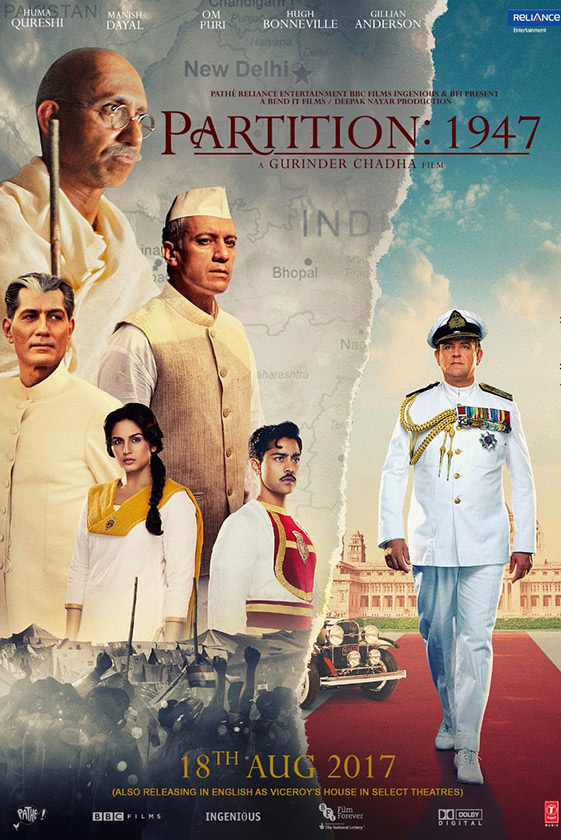
He, however, reveals that the concluding scene has a surrealistic appeal and is set in a computer room where Nehru and Gandhi make statements on India. "The film bears no such implication," says Ashby who remembers meeting Gandhi as a child in Calcutta during 1947. Robert Ashby, the British actor and son of Huseyn Shaheed Suhrawardy - one of the creators of Pakistan and later its prime minister - who plays Nehru in Jinnah reiterates that the heaven and hell assumption is incorrect. Ahmed maintains the black and white characters of Gandhi may have made for good cinema, but it was poor history. Many historians from across the border obviously feel Jinnah stands misrepresented. However, in Indian historical accounts, he is overshadowed by Gandhi and Nehru throughout the freedom struggle. Indian history sees Jinnah as an obdurate leader who would settle for nothing less than a sovereign state for the Muslims. In real life he mourned the assassination of Gandhi and called it a sad loss for the Muslims," Khan said in a faxed response to a questionnaire from his office in London. "Although Jinnah could see through their ( Gandhi and Nehru) designs and foresee the plots being hatched around him by his political opponents, he, nevertheless, showed nothing but courtesy and respect for them. Though Tariq Azim Khan, director of the Quaid Project, agrees that Gandhi was a ''good'' film, he believes it was "much flawed." Of the accusation that Gandhi and Nehru go to hell in his film, he says: "It is mischievous and deliberately misleading." Khan clarifies the film does not aim to score points or indulge in propaganda, but deals with Jinnah's life, the rationale and the events leading to the creation of Pakistan. "Jinnah, the founder of Pakistan, has either been ignored or, as in the case of of the hugely successful film Gandhi, portrayed as a cold megalomaniac, bent on the bloody partition of India," writes Ahmed in his recent book, Jinnah, Pakistan and Islamic Identity (Oxford University Press, Pakistan). Attenborough's Jinnah had a 10-minute presence in a three-and-a-half hour film and was portrayed by Alyque Padamsee as someone who scowled all the time and clearly despised Gandhi. Nowhere do we suggest that Nehru and Gandhi go to hell," says Professor Akbar Ahmed, who visualised the film and is its executive producer.Īimed at correcting Jinnah's portrayal in Richard Attenborough's Oscar-winning Gandhi, Jinnah claims to present an accurate and honest presentation of the man popularly known in Pakistan as Quaid-i-Azam - the people's leader. This contention is, however, vehemently denied by those involved in the film. On your way Jinnah Sahib." A door opens up and a shimmering staircase awaits Jinnah. Nehru and Jinnah exchange a loaded handshake. Please say your goodbyes." Gandhi and Nehru (their ghosts, that is) instantly rise in deference to Jinnah. "Jinnah Sahib, I'm afraid you are coming with me." To Gandhi and Nehru, he says: "Er. "Well gentlemen, I must leave," Kapoor tells Gandhi and Nehru. Gandhi, Nehru and Jinnah are all in the waiting room. According to the report: ' Kapoor decides who goes to hell and to heaven. Whether this means Gandhi and Nehru are just left behind or are banished to hell is an inference left to the audience to decide. With the film slated for release this summer, a recent magazine report suggests that Jinnah shows Gandhi and Nehru left behind while Jinnah ascends an illuminated staircase to heaven. A moral distinction between good or evil calculated by a divine source which takes these human souls to heaven or hell.

Now, it is the after life of its three important players - Gandhi, Jinnah and Nehru - that lies in question. Though the film was first commissioned by then president Farooq Leghari to commemorate the golden jubilee of Pakistan's birth, Prime Minister Nawaz Sharief asked Cultural Affairs Minister Mushahid Hussain to scrutinise the script when the film was being shot in Pakistan. First, over the choice of actors - Dracula famed Christopher Lee playing Jinnah and Indian actor Shashi Kapoor cast as the sutradhar (narrator), a role that many think is that of the angel Gabriel. Jinnah, the film on the life and times of the founder of Pakistan, has been in constant controversy since its genesis. While British historians squirm about Shekhar Kapur's representation of Queen Elizabeth I - as the Virgin Queen who wasn't and played naughty with Robert Dudley, the Earl of Leicester - another film set 350 years later is dogged by fresh accusations.

Historical films somehow cannot escape it. The Rediff Special/ Archana Masih Did Jinnah go to heaven, Gandhi to hell?

The Rediff On The NeT Special: Jinnah film lands in more controversy


 0 kommentar(er)
0 kommentar(er)
